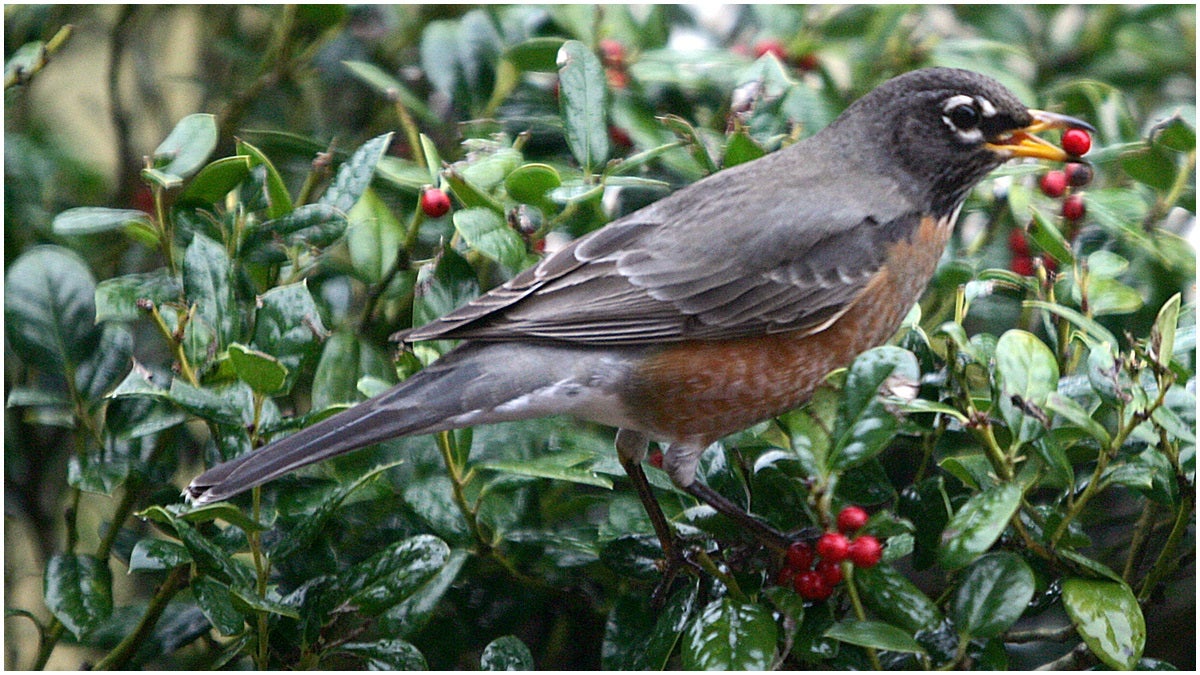Delaware asks public to report any sick or dead birds

(AP Photo/Dr. Scott M. Lieberman-File)
Delaware environmental leaders are asking the public to report any sick or dead birds as they try to monitor West Nile virus in the state.
Like in past years, the Dept. of Natural Resources and Environmental Control’s Division of Fish and Wildlife Mosquito Control Section is asking the public only to report sick or dead crows, blue jays, cardinals, robins, hawks or owls, plus clusters of five or more sick or dead wild birds of any species.
“We are interested in when and where West Nile virus might again appear in Delaware this year, and in monitoring the timing and locations of its possible spread throughout the state,” said Dr. William Meredith, Mosquito Control Section administrator. “Our sampling strategy this year is to collect and test a sample of wild birds found throughout the state into late September.”
The birds should have been dead for less than 24 hours and not appear to have died by other obvious causes. Meredith added that uncollected wild bird specimens are very unlikely to transmit the mosquito-borne disease to humans, or to pets that come in contact with a sick or dead bird.
From July through mid- to late-October, DNREC’s Mosquito Control Section also operates a statewide network of about 20 sentinel chicken stations placed in prime mosquito areas, which “keep watch” for West Nile virus (WNV) and eastern equine encephalitis (EEE), another mosquito-borne viral disease that affects horses and humans.
“The prevalence of prime mosquito production habitats in Delaware, combined with our high human population density, presents quite a challenge, but our approach to controlling mosquitoes has been effective in reducing the frequency of West Nile virus transmission and helping to prevent large outbreaks,” Meredith said.
The period of greatest concern for disease transmission is in late summer and early fall, he said. Two other mosquito-borne diseases of concern are the chikungunya and Zika viruses. However, neither of these two diseases involves wild birds as host reservoirs for the viruses, but rather are diseases transmitted by mosquitoes from person-to-person with no avian involvement.
WNV is transmitted to humans primarily by the common house mosquito, and possibly by Asian tiger mosquitoes. The disease first appeared in Delaware in 2001, with a peak year in 2003, which saw 17 reported human cases and two fatalities, as well as 60 WNV-stricken horses.
Delaware had no human cases of West Nile virus in 2016, a year for which the Centers for Disease Control’s (CDC) nationwide figures were 2,038 reported human cases of WNV resulting in 94 deaths.
Sick or dead birds can be reported to the Mosquito Control Section between 8 a.m. and 4 p.m., Monday through Friday, by calling Mosquito Control’s field offices:
New Castle County and Kent County from Dover north, Glasgow office: 302-836-2555
Remainder of Kent County and Sussex County, Milford office: 302-422-1512
Callers to Mosquito Control’s field offices after business hours or on weekends or holidays can leave voicemail
WHYY is your source for fact-based, in-depth journalism and information. As a nonprofit organization, we rely on financial support from readers like you. Please give today.


